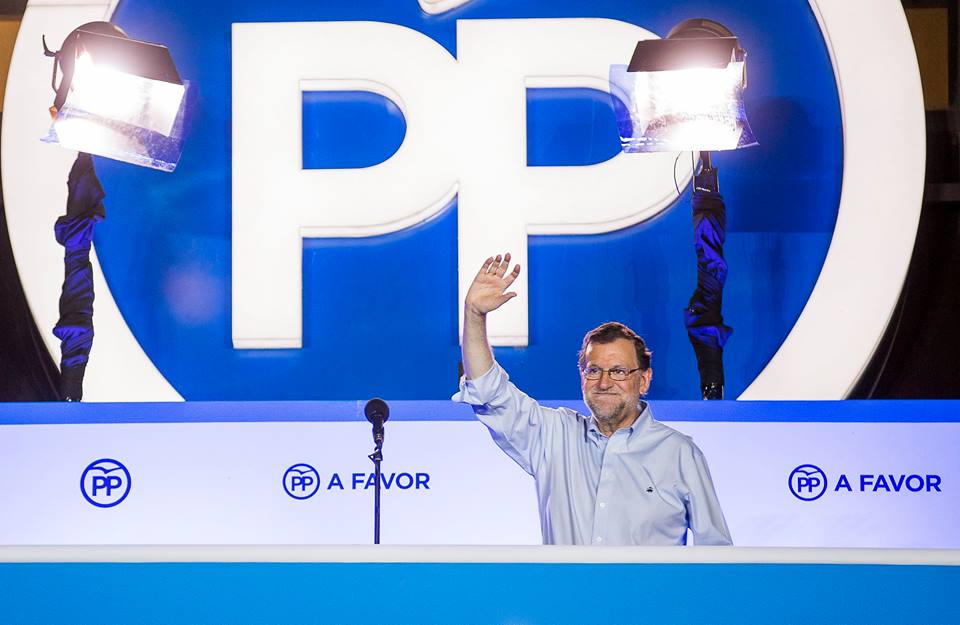The PM gets one third of the votes and widens the distance with the Leftist parties. Agreement with other parties is still needed to end the half-year long political deadblock.
 Mariano Rajoy celebrates his victory in Madrid, 26 June 2016. / PP
Mariano Rajoy celebrates his victory in Madrid, 26 June 2016. / PP
The second election has strengthened the position of Conservative People’s Party ‘presidente’ Mariano Rajoy, who has won 13 more seats obtaining 33% of the vote.
In December, Spain voted for its most diverse Parliament in democracy. After months of talks, the 4 majoritarian parties (2 of them ‘old parties and 2 ‘emerging’) did not reach an agreement.
Labour party PSOE had the worst results in its history, but its leader,Pedro Sánchez, avoided the feared “sorpasso” of emergent Unidos Podemos. The anti-establishment coalition was to become the first party on the left, according to all polls. Leader Pablo Iglesias admitted the results were “not what they expected”, as he hoped to become the real alternative to the PP.
Ciudadanos, the new Liberal party led by Albert Rivera, came fourth and lost 8 seats, but it could still hold the key to a centre-right government with Rajoy.
LEARNING TO NEGOTIATE
This repetition of the general election had never happened in democracy before. In the first half of 2016, no party found enough support to form a stable government.
Since the first vote in December 2015, new corruption cases emerged, mainly related to the Conservative Party in power. These scandals, nonetheless, do not seem to have changed the vote of those supporting Rajoy’s party.
Now, more weeks of hard negotiations are ahead, in a country where the financial crisis still affects many families: 20% are unemployed.
What is clear is that no-one is ready to go to a third election.
EVANGELICALS: "VOTE WISELY"
Evangelical Christians in Spain had issued a series of articles on education, economy, nationalism, refugees, etc. giving a biblical perspective on some of the current social challenges the country faces. The Spanish Evangelical Alliance issued them in the document "Vote wisely" (in Spanish, here).

Las opiniones vertidas por nuestros colaboradores se realizan a nivel personal, pudiendo coincidir o no con la postura de la dirección de Protestante Digital.
Si quieres comentar o